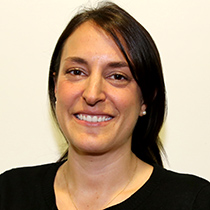Dr Sherrie Kelly
Honorary Staff
Working groups

Background
Dr Sherrie Kelly is an infectious disease modeller specialising in applied health economics. She has over 15 years of experience working with countries across all income levels and global regions, as well as with a wide range of national and international organisations. Dr Kelly has a background in epidemiology and global health with focus on HIV, TB, and maternal-child health.
Dr Kelly leads the Burnet Institute's Optima group on HIV, TB, and malaria modeling applications and research, as well as facilitates Optima training workshops and country missions. Prior to joining the Optima team, Dr Kelly worked with UNAIDS and the Public Health Agency of Canada, having experience in infectious disease emergency response and basic laboratory research.
Qualifications
- PhD, Infectious Disease Modelling, Monash University, Australia, 2014–2017
- MSc, Biochemistry and Medical Genetics, University of Manitoba, 1999–2001
- BSc, Genetics Honours, 1st Class, University of Manitoba, 1994–1998
Appointments
- HIV Modelling Consortium – Participant, 2016
- International AIDS Society - Member
Awards
- Sexual Health Society of Victoria (SHSOV) Educational Support Grant ($1,000) - 2016
- Monash Graduate International Postgraduate Research Scholarship ($26,288/year, 3 years) - 2016–17
- University International Postgraduate Award, UNSW Australia ($25,392/year, 3 years) - 2014–16
- SARS Outbreak Special Team Excellence Award, National Microbiology Laboratory, PHAC - 2003
- Manitoba Health Research Council Studentship ($17,900/year, 2 years) - 1998–01
- Phyllis J McAlpine Graduate Fellowship, University of Manitoba ($500) - 2000–01
- Manitoba Medical Service Foundation Poster Competition Award for Excellence ($200) - 2000; Alumni Association Travel Award, University of Manitoba ($500) - 2000
- Biochemistry and Medical Genetics Travel Award, University of Manitoba ($500) - 2000
- First Class Honours Award for Bachelor of Science Genetics Degree, University of Manitoba - 1998
- Bachelor of Science Dean’s Honours List, University of Manitoba - 1997–98
Positions
- Research Associate, Burnet Institute, Melbourne, Australia, 2015 to present
- Epidemiologist, Children’s Hospital of Eastern Ontario, Ottawa, Canada 2011–2014
- Epidemiologist, HIV/AIDS Surveillance Section, Public Health Agency of Canada, Ottawa, Canada, 2011 and 2013
- Epidemiological Data Analyst, UNAIDS, Geneva, Switzerland (remote part-time contractor 2009-2012), 2007–2012
- Data Analyst, Manitoba Public Health, Tuberculosis Control Program, Winnipeg, Canada, 2006–2007
- Project Administrator, National Food Institute, Copenhagen, Denmark, 2005–2006
- Bioinformatician, Public Health Agency of Canada, Winnipeg, Canada, 2002–2005
- Research Assistant/Student, University of Toronto (2002), University of Manitoba (1996–2001)
Burnet publications
View 32 moreOptimising HIV spending in 12 eastern European and central Asian countries: a modelling study
The Lancet HIV
Debra Ten Brink et al
Measuring HIV Acquisitions Among Partners of Key Populations: Estimates From HIV Transmission Dynamic Models
JAIDS Journal of Acquired Immune Deficiency Syndromes
Romain Silhol et al
Public health benefits of shifting from hospital-focused to ambulatory TB care in Eastern Europe: Optimising TB investments in Belarus, the Republic of Moldova, and Romania
PLOS Global Public Health
Sherrie L. Kelly et al
Reports and other work
-
HIV Mathematical Modelling to Support Swaziland's Development of its HIV Investment Case.
Swaziland is presently in the process of developing its HIV investment case, with a specific focus on prioritizing high-impact interventions. To initiate this process, the Government of Swaziland and UNAIDS have solicited assistance from the World Bank to estimate the potential impact of these high-impact interventions through mathematical modeling. The World Bank, in turn, contracted the HIV modeling team at UNSW Australia to undertake this task. The following report provides a summary of the outcomes derived from this modeling effort.
HIV Mathematical Modelling to Support Swaziland's Development of its HIV Investment Case.



